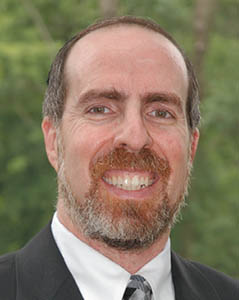
Which ruling of Hacham Ovadia had the most impact? It would seem that his ruling in which he forcefully asserted that the Jews in Ethiopia were indeed Jews in the fullest sense. There are some more than 100,000 Ethiopian Jews who currently reside in Israel as a direct consequence of Hacham Ovadia’s 1973 ruling, in his capacity of chief rabbi of the State of Israel, confirming their status as Jews. Rav Yosef’s great ruling enabled these many Jews to obtain automatic Israeli citizenship under Israel’s Law of Return, which guarantees Israeli citizenship to any Jew who requests sanctuary in the Jewish state.
There are those who think that Hacham Ovadia issued this ruling without basis in Jewish law. They are under the misconception that Hacham Ovadia invoked his rabbinic authority to make an exception to Halacha due to the special circumstances. Nothing could be further from the truth.
No rabbi has the authority to issue a ruling contrary to Jewish law. If a rabbi does so, his ruling enjoys no validity. Halachic authorities present their decisions in writing to enable colleagues and students to understand their ruling and subject it to scrutiny. No rabbi gets a free pass. For example, every teshuva (halachic responsum) penned by Rav Moshe Feinstein has been carefully reviewed and very often disputed. The same rigorous review has occurred with Hacham Ovadia’s rulings.
In the case of Rav Yosef’s ruling regarding Ethiopian Jews, his reasoning is presented in Teshuvot Yabia Omer 8:11. He bases his ruling on the precedents set by two major 16th-century halachic authorities, the Radbaz and his eminent student the Maharikash, who accepted the Ethiopian Jews as Jews. Hacham Ovadia forcefully writes that once the Radbaz and the Maharikash, two pillars of Halacha, accepted the Ethiopian Jews’ tradition of descent from the tribe of Dan, our generation enjoys no right to question this ruling.
Moreover, Hacham Ovadia cites the former Ashkenazic Chief Rabbi Yitzhak Herzog who questioned this ruling based on the views of anthropologists who question the Jewish identity of Ethiopian Jews. Hacham Ovadia roundly rejects this view, noting that once a chazaka (halachic presumption) has been established of Jewish identity we enjoy no right to disturb this chazaka based on sources extraneous to the halachic process. Hacham Ovadia elsewhere argues that whenever there is a clash between scientists and traditional halacha, the halacha unquestionably prevails.
After presenting Hacham Ovadia’s ruling to one audience, a gentleman asked me why I felt comfortable with Rav Yosef’s ruling, in light of the fact that so many great rabbanim, such as Rav Moshe Feinstein and Rav Eliezer Waldenberg, disagree. I responded that Rav Ovadia was unusually adamant about this ruling. Indeed, his reasoning appears to be unassailable.
One might question the stability of the chezkat kashrut of the Ethiopian Jewish community, since 500 years have passed since the Radbaz and Maharikash issued their rulings. Hacham Ovadia dismisses this concern, noting that Ethiopian Jews zealously guarded their Jewish identity throughout the generations, even going to the extreme of requiring community members who even spoke to nochrim (gentiles) to immerse in a river.
At Congregation Shaarei Orah, the Sephardic Congregation of Teaneck, we regard Ethiopian Jews as full-fledged Jews, in accordance with Hacham Ovadia’s landmark ruling. They are given aliyot without questioning whether they underwent a conversion ceremony after their arrival in Israel. This is one of the many ways in which Hacham Ovadia’s rulings make such a deep impact on our kahal kadosh, along with the rest of am Yisrael.
The power of Hacham Ovadia’s powerful pen is certainly mightier than the proverbial sword, especially since it was used to advance such noble causes, such as the integrity of the majestic Ethiopian Jewish community who sacrificed so much for so long to preserve their Jewish identity and connection to Zion.
By Rabbi Haim Jachter
Rabbi Haim Jachter is the spiritual leader of Congregation Shaarei Orah, the Sephardic Congregation of Teaneck.










